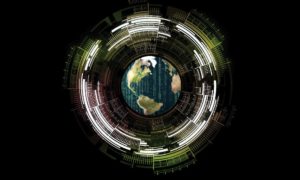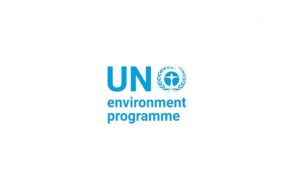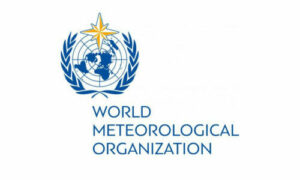Nouvelle
Digital Cooperation for the Environment
Advancing technology has always been coupled with significant impacts on the environment. The recent advances in technology offer ground-breaking opportunities to monitor and protect the environment, as well as overall planetary health. By harnessing them appropriately, the digital revolution can be steered to combat climate change and advance global sustainability, environmental stewardship and human well-being.
Roadmap for Digital Cooperation
In the « Roadmap for Digital Cooperation, » UN Secretary-General António Guterres calls for action in the digital age.
“Digital technology is shaping history. But there is also the sense that it is running away with us. Where will it take us? Will our dignity and rights be enhanced or diminished? Will our societies become more equal or less equal? Will we become more, or less, secure and safe? The answers to these questions depend on our ability to work together across disciplines and actors, across nations and political divides. We have a collective responsibility to give direction to these technologies so that we maximize benefits and curtail unintended consequences and malicious use.” – UN Secretary-General António Guterres
Many countries and citizens are deprived of capacities and skills crucial to the digital era and to attaining the United Nations Sustainable Development Goals (UN SDGs). The digital technologies that underpin core societal functions and infrastructure, including supporting access to food, water, housing, energy, health care and transportation, need to be safeguarded. A broad and overarching statement outlining common elements of an understanding on digital trust and security, endorsed by all Member States, could help to shape a shared vision for digital cooperation based on global values.
There are significant gaps in global digital cooperation, and digital technology issues are too often low on political agendas. Even where there has been cooperation, it is frequently fragmented and lacks tangible outcomes or sound follow-up processes. As a starting point, the Internet Governance Forum must be strengthened, in order to make it more responsive and relevant to current digital issues.

Photo: Kristen Murrell (UBC)
Digitalisation and the Environment
In line with the above, it is proposed to establish a pilot of the Roadmap’s suggested Inter-Sessional Policy Development Work in the form of a Policy Network on Environment and Digitalisation (PNE), which would focus on assessing and gathering best practices on environmental matters of relevance for digital public policy.
The particular focus of the PNE would be decided with the involvement of the IGF’s Multi-Stakeholder Advisory Group (MAG), building on the global community’s input, for example, focus on climate change, Internet governance and best practices to overcome “rebound effects” in the energy consumption of ICTs.
Advancing technology has always been coupled with significant impacts on the environment. Operations related to information and communications technologies (ICT) are expected to represent up to 20 per cent of global electricity demand, with one third stemming from data centres alone. The recent advances in technology offer ground-breaking opportunities to monitor and protect the environment, as well as overall planetary health. By harnessing them appropriately, the digital revolution can be steered to combat climate change and advance global sustainability, environmental stewardship and human well-being.
According to The Case for a Digital Ecosystem for the Environment: Bringing Together Data, Algorithms and Insights for Sustainable Development, in order to change the current trajectory regarding the sustainability of our planet requires transparency, inclusion and accountability. A shift in the global political economy of environmental data is needed to harness the efforts of public and private sectors to jointly generate high quality data and insights as a global public good while avoiding technology and data monopolies. The global economy is changing and we will not be able to achieve the environmental SDGs or environmental sustainability without utilizing frontier technologies and integrated data. Social media networks are shaping consumer preferences and political outcomes across the globe. There is still an opportunity to change the current trajectory if we use data and information: to build awareness of the state of our planet, to influence consumer behaviour, to inform markets and to reform governance systems.
A combination of satellites, drones, mobile phones, sensors, financial transaction technologies and devices connected to the IoT are collecting real time data that could transform the management of the Earth’s natural resources and ecosystems. Spatialised information availability is expanding through: advancements in official statistical processes toward geolocating census and survey data; new techniques for better utilising administrative data (such as water provisioning, environmental permits, land ownership, etc.); the increased use of earth observation data and improved data dissemination processes. The combination of these innovations enables the mapping of: population, social development and economic actors in a way that makes it possible understand and predict the use of and demand for natural resources including the implications of environmental and climate change.
The opportunity to use this data to improve real time decision making on natural resources could also transform global environmental governance frameworks and multilateral environmental agreements. There is tremendous hope that decisions can be made, monitored and enforced using real time spatial and statistical data, thereby closing the gap between alarm, action and impact.
Geneva’s Role in Digital Policy
Geneva is one of the main hubs where digital policies are debated, evaluated, and adopted. It is a hub where innovations are fostered, where policies are debated, where leaders, experts, and decision-makers meet regularly – and a place where solutions are born and implemented. For example, more than 50% of digital policy issues are addressed in Geneva, according to the Geneva Internet Platform.
Partner Organizations
Resources
- Roadmap for Digital Cooperation | United Nations Secretary-General
- Sizing up the environmental cost of digital technologies | Zelda Chauvet, Geneva Solutions | October 2020
- Mapping nature’s hidden benefits | UNEP | September 2020
- Internet Governance in International Geneva | Michael Kende, Fondation pour Genève and Graduate Institute and Development Studies | September 2020
- Geneva carves its place as a home for internet governance | Zelda Chauvet, Geneva Solutions | September 2020
- What if Geneva became the leader in global digital policy? | Zelda Chauvet, Geneva Solutions | August 2020
- Navigating Geneva’s Digital Policy Landscape | DiploFoundation | June 2020
- Frontier technologies are key tools to combat climate change | ITU and UN | April 2020
- Contribution to the High Level Panel on Digital Cooperation: Roundtable 1B on Digital Public Goods – Environmental Data as Digital Public Goods Within a Digital Ecosystem for the Planet | UNEP | March 2020
- Are These the 20 Top Multi-Stakeholder Processes in 2020 to Advance a Digital Ecosystem for the Planet? | David Jensen (UNEP), Karen Bakker and Christopher Reimer (University of British Columbia) | January 2020
- Are these the 20 top priorities in 2020 for a digital ecosystem for Earth? | David Jensen (UNEP), Karen Bakker and Christopher Reimer (University of British Columbia) | January 2020
- Recommendation L.1470: Greenhouse gas emissions trajectories for the information and communication technology sector compatible with the UNFCCC Paris Agreement | ITU | January 2020
- The role of artificial intelligence in achieving the Sustainable Development Goals | Ricardo Vinuesa (KTH Royal Institute of Technology) et al. | January 2020
- The Case for a Digital Ecosystem for the Environment: Bringing Together Data, Algorithms and Insights for Sustainable Development | UNEP | March 2019
- The Case for a Digital Ecosystem for the Environment | David Jensen and Jillian Campbell, UNEP | March 2019
- The promise and peril of a digital ecosystem for the planet | Jillian Campbell and David Jensen, UNEP | September 2019
- Smart Earth: A meta-review and implications for environmental governance | Karen Bakker and Max Ritts, University of Minnesota | September 2018
- Digitalisation and Energy | International Energy Agency | November 2017












